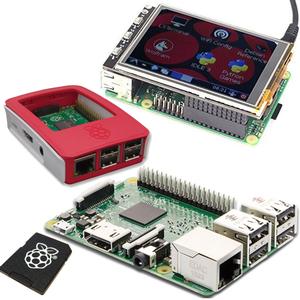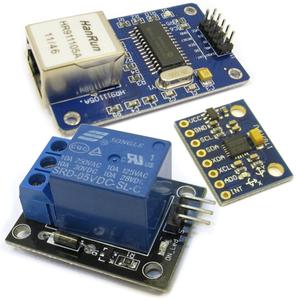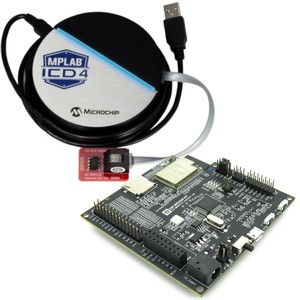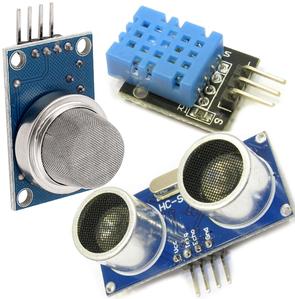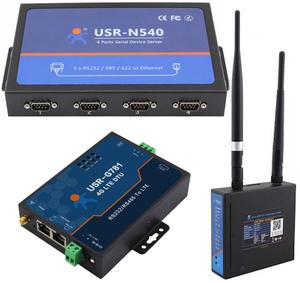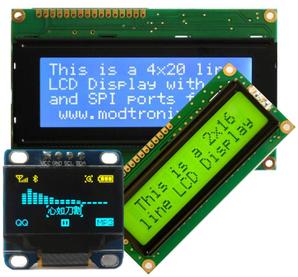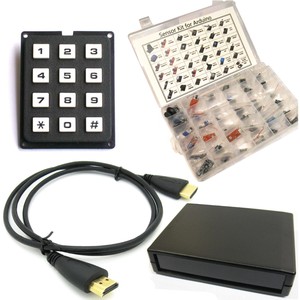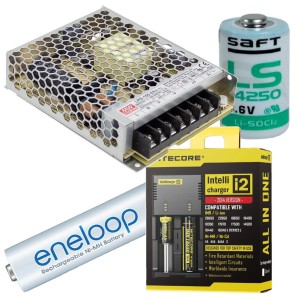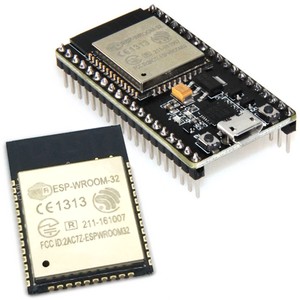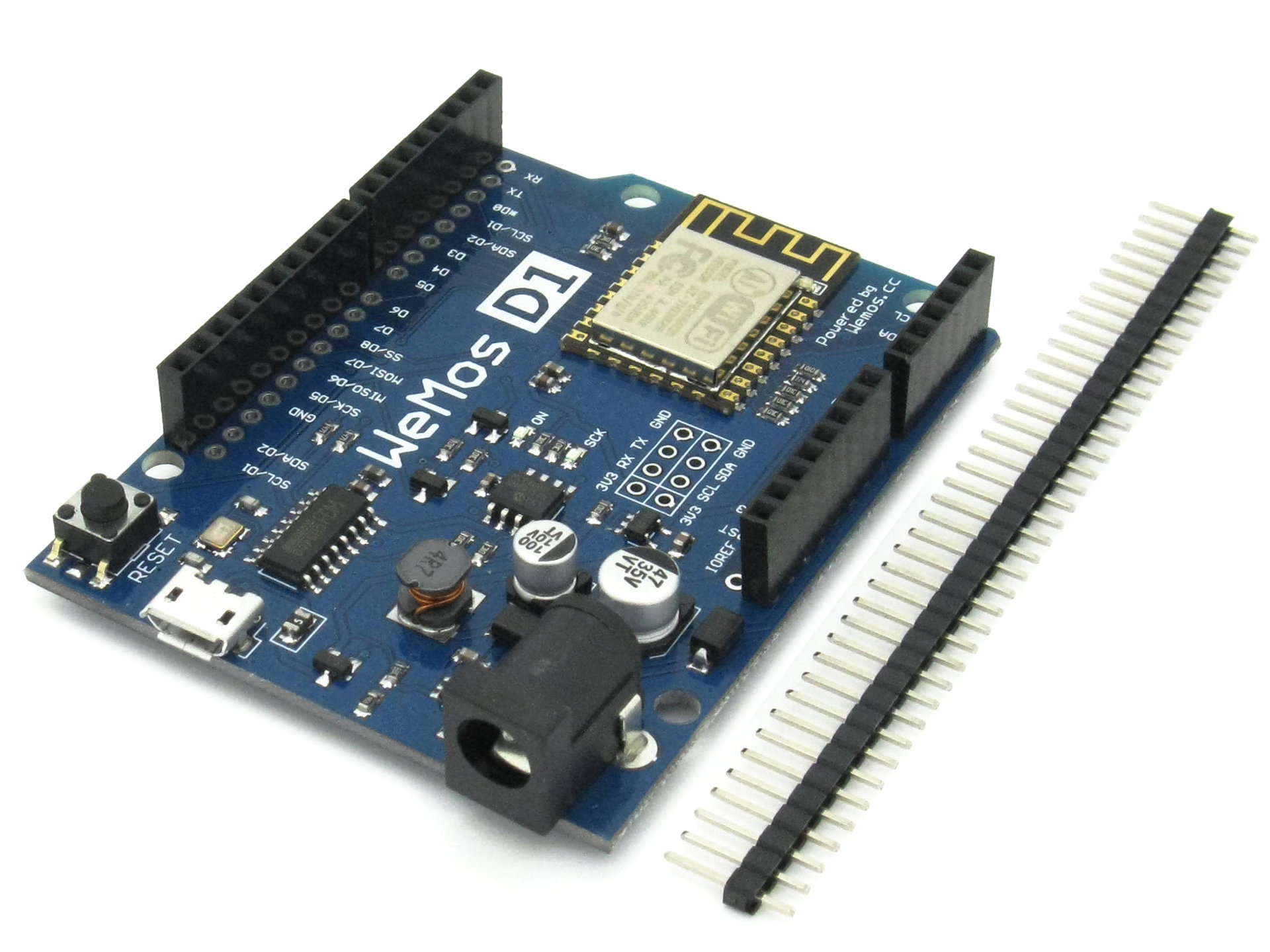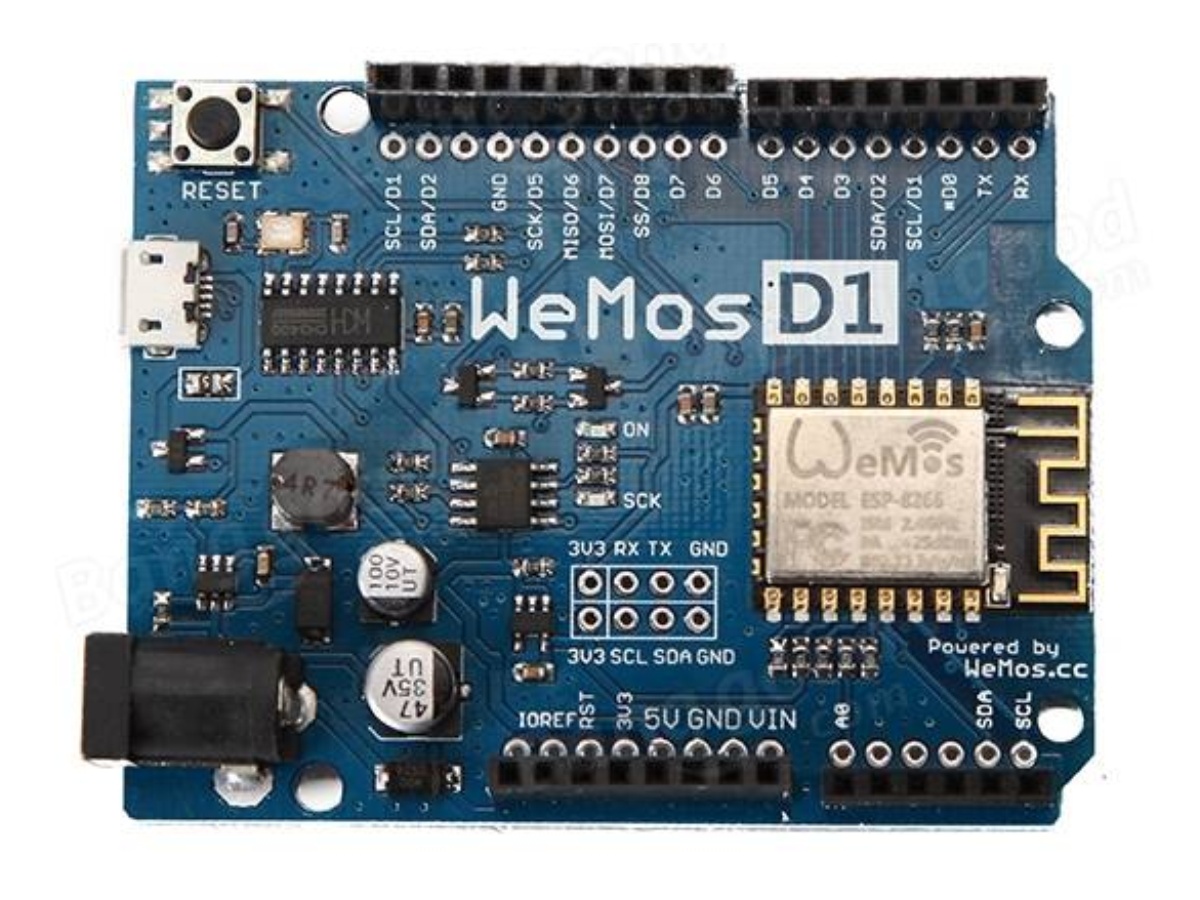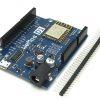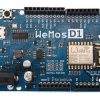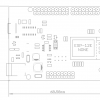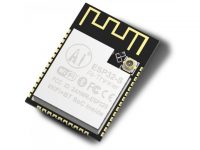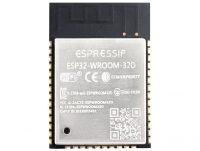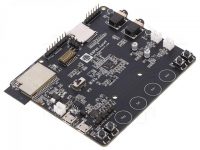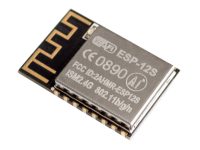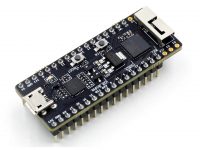No products in the cart.
ESP32 & ESP8266, WiFi Modules
WeMos D1 R2 WiFi ESP8266 Board
Availability:
Out of stock
SKU: ESP0-001Code: ESP-WEMOS-D1R2
WeMos D1 R2 WiFi ESP8266 Board with ESP-12F
$10.50
Discount per Quantity
| Quantity | Price |
|---|---|
| 1 | $10.50 |
| 2+ | $9.98 |
| 5+ | $9.45 |
| 10+ | $8.93 |
| 20+ | $8.40 |
Out of stock
This listing is for the latest R2 version of the WeMos D1 board. It is imported and sold by Modtronix Engineering(Australia), who also provide free software and support(via wiki pages) to help you get this board running with Lua or Arduino IDE!
This version of the WeMos board is assembled with the latest ESP-12F module! The ESP-12F uses a 4 Layer PCB, giving it superior RF performance over it's predecessors! This optimized RF performance increases communication distance by around 30% to 50% compared to the ESP-12E!
The WeMos D1 R2 is basically an ESP-12F module (ESP8266 with 4MBytes of FLASH) mounted on a board with an Arduino Uno footprint and connectors. It also has a USB to serial converter and a DC/DC converter, meaning you can use it with supply voltages up to 24V!
Please note that this board 3.3V, and can NOT be used with 5V logic modules without a voltage level converter! You can NOT use 5V Arduino shields with this board, or at least you have to ensure the shield is 3.3V compatible!
There are many suppliers of ESP8266 based boards, and most of them contain different software. It can be very, very time consuming getting them to work, and figuring our what software they have running on them. The most popular ways to use and program ESP8266 based boards are:
- Use it with the standard Arduino IDE
- Use it with the NodeMCU Lua Firmware (Lua Interpreter)
-- Use with Arduino IDE --
This is a very popular and easy way to use ESP8266 based modules!
For detailed information how to very easily program this board from within the Arduino IDE (V1.6.4 and higher), see this page on our wiki.
After buying this item, we will send you detailed information how to very easily program this board from within the Arduino IDE (V1.6.4 and higher).
For example, to flash the system LED, the following Arduino program can be used:
void setup() {
// Initialize the LED_BUILTIN pin as an output
pinMode(LED_BUILTIN, OUTPUT);
}
// the loop function runs over and over again forever
void loop() {
// Turn the LED on (Note that LOW is the voltage level
digitalWrite(LED_BUILTIN, LOW);
// Wait for a second
delay(1000);
// Turn the LED off by making the voltage HIGH
digitalWrite(LED_BUILTIN, HIGH);
// Wait for two seconds (to demonstrate the active low LED)
delay(2000);
}
--- Use with NodeMCU Lua Firmware ---
The official NodeMCU firmware contains the Lua Interpreter. Lua is an interactive programming language which allows you to experiment and build simple working programs without a lot of effort. If you are not familiar with Lua, you will find that it is not hard to learn, at least for the simple tasks needed to get started.
For detailed information how to program this board with the official NodeMCU firmware, see this page on our wiki.
After buying this item, we will send you detailed information how to program the board with the official NodeMCU firmware.
The official NodeMCU site does NOT supply pre built(compiled) firmware. You have to build a custom version using their online compiler. BUT, we have made it easy for you by providing a pre built firmware for the hardware we sell, along with very easy instructions how to program it.
Documentation, Source Code and Additional Information
- Official WeMos D1 R2 page
- Schematics
- Getting started in Arduino documentation on official WeMos D1 R2 page
- Getting started in NodeMCU documentation on official WeMos D1 R2 page
Pins
| Pin | Function | ESP-8266 Pin |
| TX | TXD | TXD |
| RX | RXD | RXD |
| A0 | Analog input, max 3.3V input | A0 |
| D0 | IO | GPIO16 |
| D1 | IO, SCL | GPIO5 |
| D2 | IO, SDA | GPIO4 |
| D3 | IO, 10k Pull-up | GPIO0 |
| D4 | IO, 10k Pull-up, BUILTIN_LED | GPIO2 |
| D5 | IO, SCK | GPIO14 |
| D6 | IO, MISO | GPIO12 |
| D7 | IO, MOSI | GPIO13 |
| D8 | IO, 10k Pull-down, SS | GPIO15 |
| G | Ground | GND |
| 5V | 5V | - |
| 3V3 | 3.3V | 3.3V |
| RST | Reset | RST |
All of the IO pins have interrupt/pwm/I2C/one-wire support except D0
Specifications
- Microcontroller: ESP-8266EX
- Operating Voltage: 3.3V
- Digital I/O Pins: 11
- Analog Input Pins: 1(Max input: 3.2V)
- Clock Speed: 80MHz/160MHz
- Flash: 4M bytes
- Length: 68.6mm
- Width: 53.4mm
- Weight: 25g
- Processor: ESP-12F
- USB Serial Chip: CH340
Package Includes
1 x WeMos D1 R2
1 x 40 Pin Header, standard 2.54mm grid
| Weight | 30 g |
|---|---|
| Wired Technology | |
| Platform | |
| Wireless Chip | ESP8266 |
| Chip Family |

